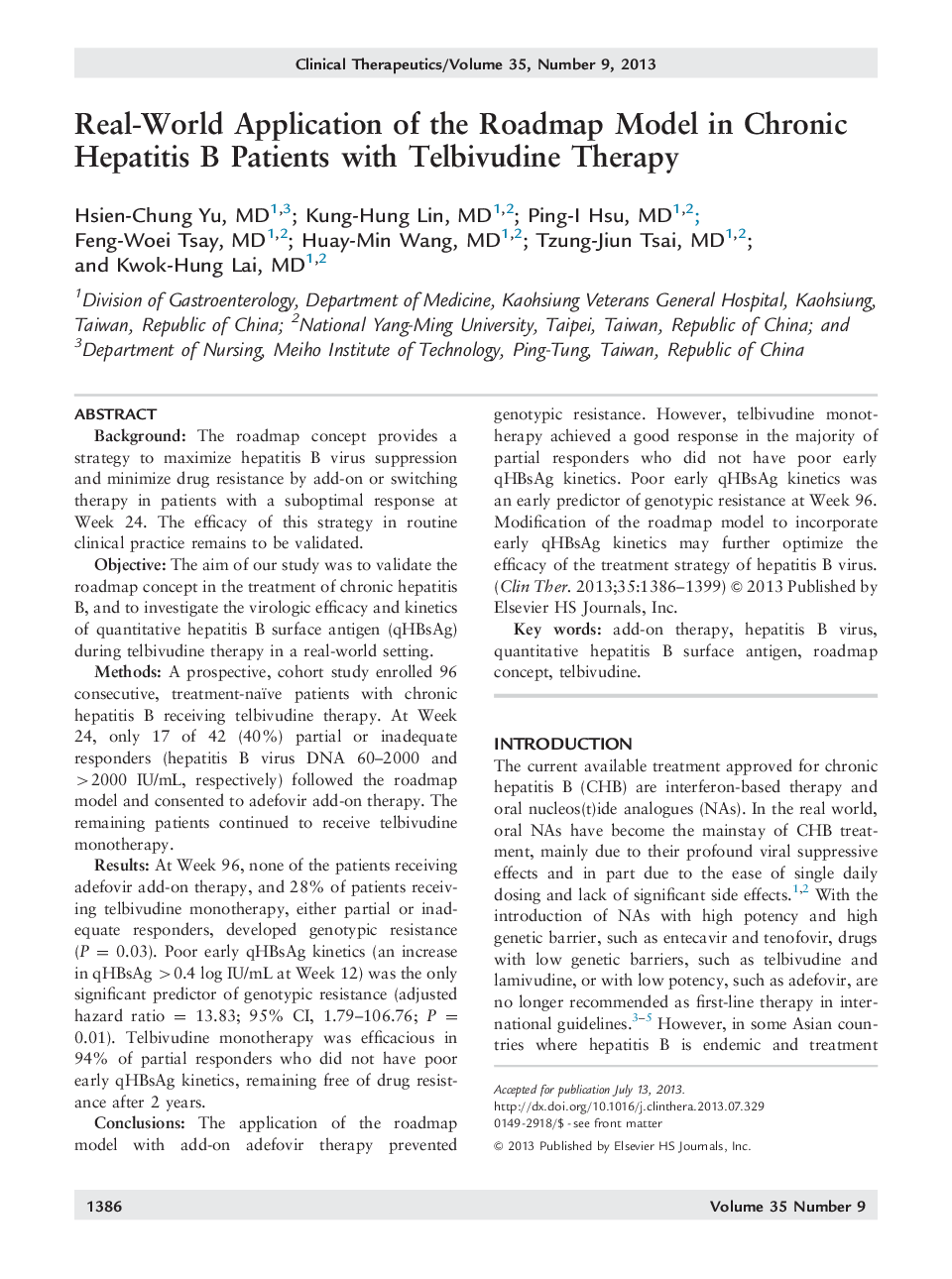| Article ID | Journal | Published Year | Pages | File Type |
|---|---|---|---|---|
| 2527186 | Clinical Therapeutics | 2013 | 14 Pages |
BackgroundThe roadmap concept provides a strategy to maximize hepatitis B virus suppression and minimize drug resistance by add-on or switching therapy in patients with a suboptimal response at Week 24. The efficacy of this strategy in routine clinical practice remains to be validated.ObjectiveThe aim of our study was to validate the roadmap concept in the treatment of chronic hepatitis B, and to investigate the virologic efficacy and kinetics of quantitative hepatitis B surface antigen (qHBsAg) during telbivudine therapy in a real-world setting.MethodsA prospective, cohort study enrolled 96 consecutive, treatment-naïve patients with chronic hepatitis B receiving telbivudine therapy. At Week 24, only 17 of 42 (40%) partial or inadequate responders (hepatitis B virus DNA 60–2000 and >2000 IU/mL, respectively) followed the roadmap model and consented to adefovir add-on therapy. The remaining patients continued to receive telbivudine monotherapy.ResultsAt Week 96, none of the patients receiving adefovir add-on therapy, and 28% of patients receiving telbivudine monotherapy, either partial or inadequate responders, developed genotypic resistance (P = 0.03). Poor early qHBsAg kinetics (an increase in qHBsAg >0.4 log IU/mL at Week 12) was the only significant predictor of genotypic resistance (adjusted hazard ratio = 13.83; 95% CI, 1.79–106.76; P = 0.01). Telbivudine monotherapy was efficacious in 94% of partial responders who did not have poor early qHBsAg kinetics, remaining free of drug resistance after 2 years.ConclusionsThe application of the roadmap model with add-on adefovir therapy prevented genotypic resistance. However, telbivudine monotherapy achieved a good response in the majority of partial responders who did not have poor early qHBsAg kinetics. Poor early qHBsAg kinetics was an early predictor of genotypic resistance at Week 96. Modification of the roadmap model to incorporate early qHBsAg kinetics may further optimize the efficacy of the treatment strategy of hepatitis B virus.
